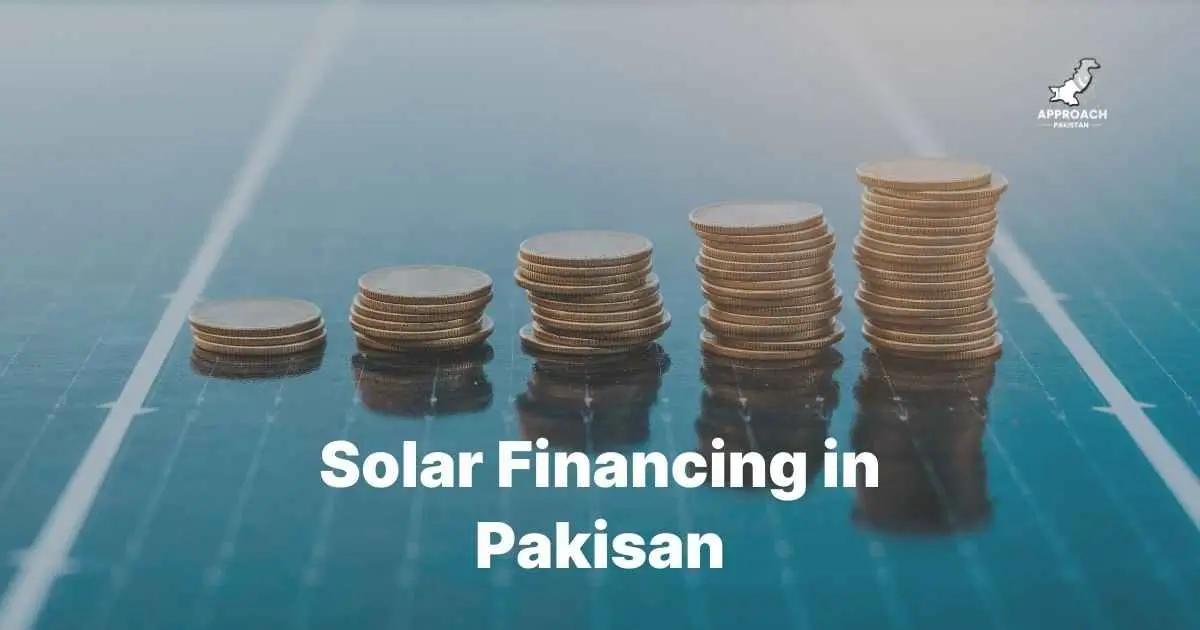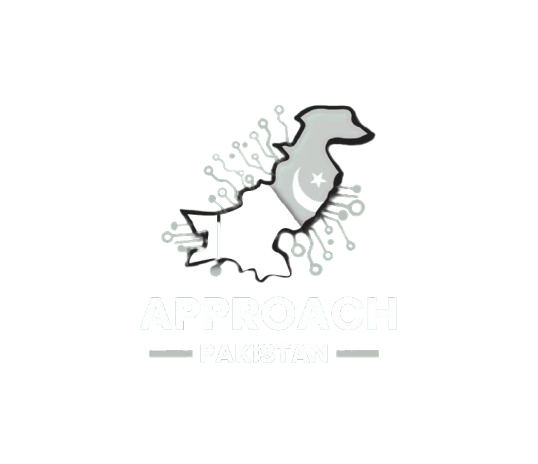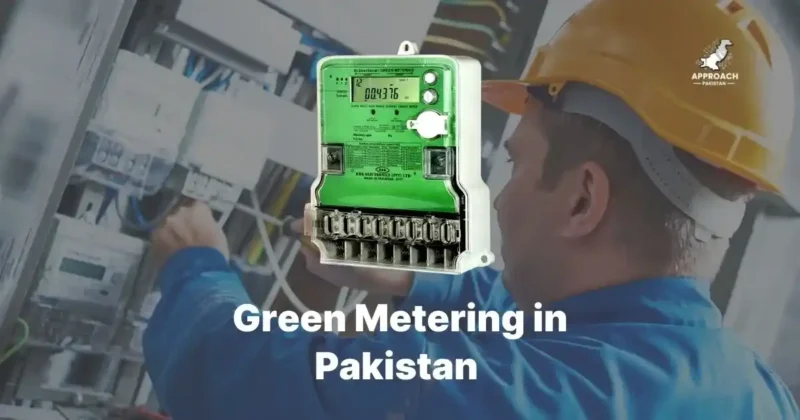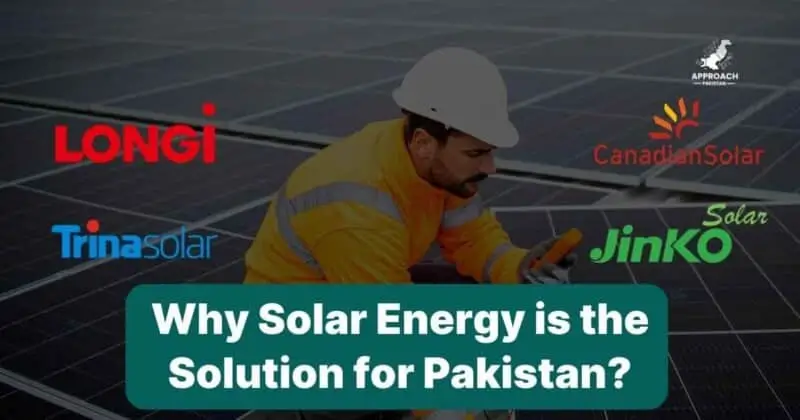Solar Financing Pakistan 2025 | Bank Loans & Comparison Guide

Pakistan’s solar financing landscape has transformed dramatically in 2025. High electricity bills eating into your monthly budget no longer need to be a permanent burden. Banks now offer attractive solar financing options that make energy independence achievable for ordinary Pakistani families.
The fear of upfront solar system costs has kept many homeowners trapped in expensive grid dependency. Traditional concerns about hidden fees, confusing payment structures, and lengthy approval processes have been addressed by major Pakistani banks. Today’s solar financing programs offer transparent pricing, flexible payment terms, and quick approval processes.
Your desire to slash electricity bills by 70-80% is now within reach through structured financing. Banks have recognized that solar energy represents Pakistan’s future, creating competitive loan products that make this technology accessible to middle-class families.
Major Bank Solar Financing Programs
Pakistan’s leading banks have launched comprehensive solar financing programs. These initiatives address the primary pain point of high upfront costs while supporting the country’s renewable energy goals.
HBL, Meezan Bank, UBL, Askari Bank, and Allied Bank lead the solar financing market. Each institution offers unique features tailored to different customer segments and financial capabilities.
| Bank | Program Name | Maximum Financing | Tenure | Markup Rate |
| HBL | HBL Solar Financing | PKR 3,000,000 | 7 years | 18-22% |
| Meezan Bank | Islamic Solar Murabaha | PKR 2,500,000 | 5 years | 17-20% |
| UBL | UBL Solar Energy | PKR 2,000,000 | 6 years | 19-23% |
| Askari Bank | Green Energy Financing | PKR 1,500,000 | 5 years | 18-21% |
| Allied Bank | Solar Power Financing | PKR 2,000,000 | 6 years | 19-22% |
These financing options have made solar systems accessible to homeowners who previously couldn’t afford the upfront investment. The structured payment plans align with monthly electricity savings, creating a practical path to energy independence.
HBL Solar Financing Details
HBL’s solar financing program stands out for its comprehensive coverage and flexible terms. The bank finances up to 100% of system costs, including installation and maintenance packages for the first year.
HBL’s solar financing calculator helps customers determine exact monthly payments based on their chosen system size. The bank offers both conventional and Islamic financing options, catering to diverse customer preferences.
Key features include:
- Maximum financing: PKR 3,000,000
- Tenure options: 3, 5, or 7 years
- Processing fee: 1% of loan amount
- Insurance: Optional equipment insurance available
The application process takes 7-10 working days from document submission to approval. HBL has partnered with certified solar installers across Pakistan, ensuring quality installations and warranty coverage.
HBL’s solar financing has helped over 15,000 Pakistani families achieve energy independence since 2023. The bank’s customer service team provides dedicated support throughout the application and installation process.
Meezan Bank Solar Solutions
Meezan Bank’s Islamic solar financing follows Shariah-compliant principles through their Murabaha product. This appeals to customers seeking religiously permissible financing options for renewable energy investments.
The bank’s solar system installment plan offers competitive rates without interest-based calculations. Instead, Meezan Bank uses profit-sharing arrangements that comply with Islamic banking principles.
Meezan Bank’s solar financing calculator provides instant quotes based on system specifications. The calculator factors in government subsidies and net metering benefits to show true cost of ownership.
| System Size | Monthly Payment | Total Cost | Monthly Savings | Net Benefit |
| 5kW | PKR 15,850 | PKR 951,000 | PKR 18,000 | PKR 2,150 |
| 7kW | PKR 22,400 | PKR 1,344,000 | PKR 25,000 | PKR 2,600 |
| 10kW | PKR 31,200 | PKR 1,872,000 | PKR 35,000 | PKR 3,800 |
The bank’s partnership with leading solar manufacturers ensures competitive equipment pricing. Meezan Bank customers receive additional warranties and after-sales support through these partnerships.
UBL Green Energy Financing
UBL’s green energy financing program targets environmentally conscious customers who want to reduce their carbon footprint while achieving financial savings.
The bank offers specialized rates for solar installations that include battery backup systems. This addresses the common concern about power availability during grid outages, especially during monsoon season.
UBL’s approach focuses on total energy independence rather than just grid-tied systems. Their financing covers complete off-grid solutions for customers in areas with unreliable electricity supply.
Processing times at UBL average 5-7 working days for standard applications. The bank’s digital application process allows customers to submit documentation online and track approval status in real-time.
UBL’s green energy financing has achieved a 95% customer satisfaction rate. The bank’s post-installation support includes system monitoring and maintenance reminders to ensure optimal performance.
Askari Bank Solar Programs
Askari Bank’s solar financing calculator provides the most detailed cost breakdown in the Pakistani banking sector. The calculator factors in regional electricity tariffs, solar irradiance data, and seasonal performance variations.
The bank’s military heritage brings disciplined approach to solar project evaluation. Askari Bank requires detailed technical assessments before approving financing, ensuring customers receive properly sized systems.
Askari Bank offers preferential rates for defense personnel and their families. This makes solar energy particularly attractive for military communities facing frequent relocations and varying electricity costs.
The bank’s solar financing includes:
- Pre-installation site survey: Included in financing package
- Performance guarantees: 5-year system performance warranty
- Maintenance support: Annual system health checks
- Insurance coverage: Equipment protection against theft and damage
Allied Bank Solar Calculator
Allied Bank’s solar financing calculator stands out for its integration with real-time electricity tariff data. This ensures customers receive accurate payback period calculations based on current utility rates.
The calculator incorporates seasonal variations in solar generation and electricity consumption patterns. This realistic approach helps customers understand true system performance throughout the year.
Allied Bank’s financing covers both residential and commercial solar installations. The bank offers special rates for businesses looking to reduce operational costs through solar energy.
| Business Type | Maximum Financing | Tenure | Special Rate |
| Small Business | PKR 5,000,000 | 7 years | 17% |
| Manufacturing | PKR 10,000,000 | 10 years | 16% |
| Commercial | PKR 15,000,000 | 12 years | 15% |
Allied Bank’s commercial solar financing has helped Pakistani businesses reduce energy costs by 60-70%. The bank’s relationship managers provide ongoing support for business customers throughout the financing period.
Financing Terms Comparison
Understanding different banks’ terms helps you choose the best solar financing option for your specific situation. Each bank offers unique advantages depending on your financial profile and system requirements.
The comparison reveals significant differences in processing times, documentation requirements, and additional services. Some banks excel in customer service, while others offer more competitive rates or flexible terms.
| Feature | HBL | Meezan | UBL | Askari | Allied |
| Processing Time | 7-10 days | 5-7 days | 5-7 days | 10-14 days | 7-10 days |
| Down Payment | 10% | 15% | 20% | 10% | 15% |
| Age Limit | 65 years | 60 years | 65 years | 65 years | 62 years |
| Income Requirement | PKR 50,000 | PKR 40,000 | PKR 45,000 | PKR 55,000 | PKR 50,000 |
| Property Requirement | Owned | Owned/Rented | Owned | Owned | Owned |
The table shows UBL requires the highest down payment but offers competitive processing times. Meezan Bank has the most flexible income requirements, making it accessible to lower-income households.
Solar Financing Application Process Guide
The solar financing application process has been streamlined across all major banks to reduce approval times and eliminate common pain points.
Banks now offer digital applications that can be completed online. This addresses the previous concern about lengthy paperwork and multiple bank visits for document submission.
The typical application process follows these steps:
- Online pre-qualification: Submit basic information to check eligibility
- Document upload: Provide required documentation through secure portals
- Site assessment: Bank-appointed engineer evaluates installation site
- Credit evaluation: Bank reviews financial profile and credit history
- Approval notification: Receive formal approval with terms and conditions
- Agreement signing: Complete loan documentation and payment schedule
- Vendor coordination: Bank facilitates connection with approved installers
Most banks complete this process within 7-10 working days. The digital approach eliminates the traditional frustration of multiple bank visits and document resubmission.
Required Documentation
Banks require specific documentation to evaluate solar financing applications. Having these documents ready accelerates the approval process and demonstrates serious intent.
The documentation requirements vary slightly between banks but generally include proof of income, property ownership, and identity verification. Some banks require additional technical documentation for larger systems.
Standard documentation includes:
- System quotations: Detailed proposals from certified solar installers
- Identity proof: CNIC, passport, or driving license
- Income verification: Salary certificates, tax returns, or business statements
- Property documents: Sale deed, registry, or property card
- Bank statements: Last 6 months’ statements from salary/business accounts
- Utility bills: Recent electricity bills to verify consumption patterns
Banks have simplified documentation requirements based on customer feedback. The focus has shifted from excessive paperwork to meaningful financial verification that protects both customers and lenders.
Eligibility Criteria for Solar Financing
Solar financing eligibility criteria ensure responsible lending while making renewable energy accessible to qualified Pakistani households and businesses.
Banks evaluate multiple factors including creditworthiness, income stability, property ownership, and debt-to-income ratios. The criteria balance risk management with the national goal of renewable energy adoption.
Common eligibility requirements include:
- Age: 21-65 years for most banks
- Income: Minimum PKR 40,000-55,000 monthly
- Employment: Stable job for minimum 2 years
- Property: Own the installation site
- Credit history: Clean credit bureau report
- Debt ratio: Total debt payments under 50% of income
Some banks offer relaxed criteria for government employees, defense personnel, or customers with existing banking relationships. This recognizes the stability of certain employment sectors and reduces perceived lending risk.
Alternative Financing Options
Beyond traditional bank financing, several alternative options exist for Pakistani customers seeking solar energy solutions.
These alternatives address specific customer segments that may not qualify for conventional bank financing. They include leasing programs, manufacturer financing, and cooperative buying arrangements.
Alternative financing options include:
Solar leasing programs: Monthly payments without ownership, ideal for customers with limited upfront capital or uncertain long-term housing situations.
Manufacturer financing: Direct financing from solar equipment manufacturers, often with competitive rates and integrated warranties.
Cooperative buying: Group purchasing programs that reduce individual costs through bulk buying power.
Islamic financing companies: Specialized Shariah-compliant lenders offering alternatives to conventional bank products.
| Option | Ownership | Monthly Cost | Maintenance | Warranty |
| Bank Loan | Customer | PKR 15,000 | Customer | Varies |
| Solar Lease | Company | PKR 12,000 | Company | Included |
| Manufacturer | Customer | PKR 16,000 | Customer | Extended |
| Cooperative | Customer | PKR 13,000 | Customer | Standard |
Cost-Benefit Analysis
Understanding the true cost of solar financing versus electricity bill savings helps customers make informed decisions about renewable energy investments.
The analysis must consider financing costs, electricity savings, net metering benefits, and system maintenance expenses. This comprehensive view reveals the actual financial impact of solar financing decisions.
A typical 5kW system analysis:
- System cost: PKR 800,000
- Financing cost: PKR 950,000 (5 years at 19%)
- Monthly payment: PKR 15,833
- Monthly savings: PKR 20,000
- Net monthly benefit: PKR 4,167
- Total 5-year benefit: PKR 250,000
The analysis shows that even with financing costs, solar systems provide positive cash flow from day one. The net monthly benefit increases significantly after loan completion, when customers enjoy full electricity savings.




